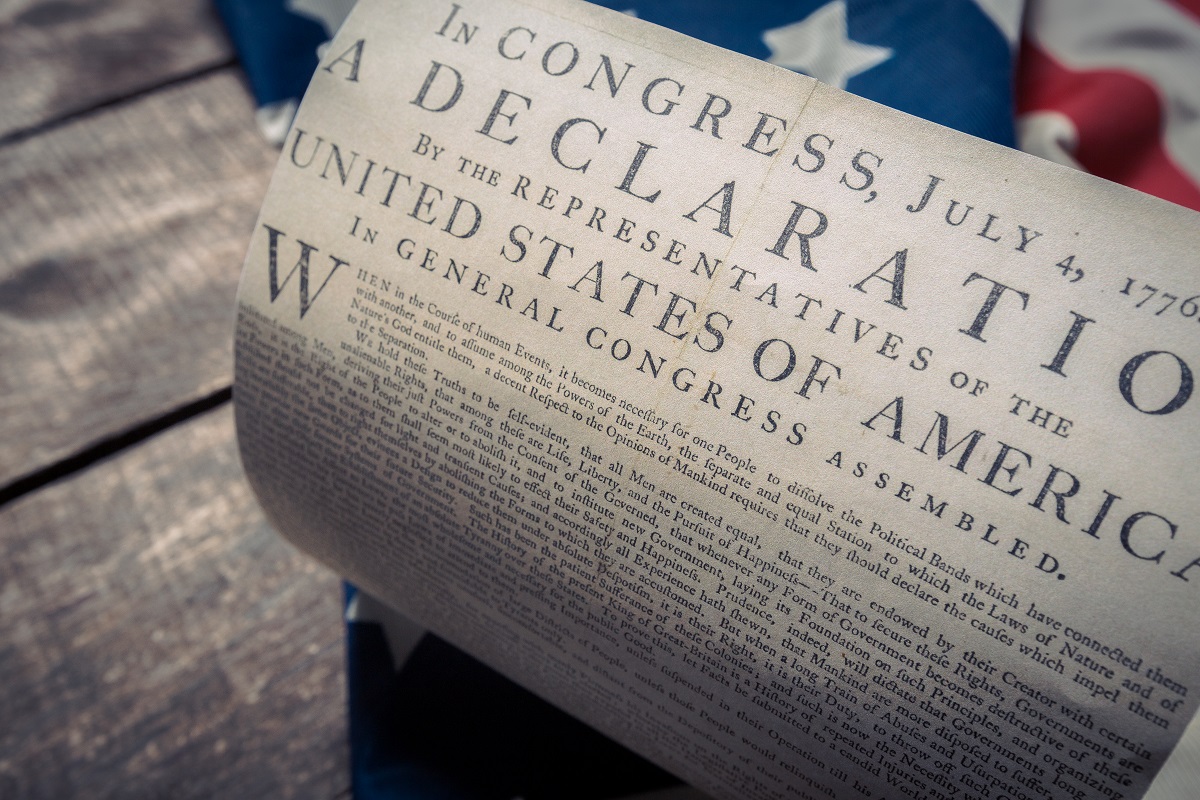Life, Liberty, and the Pursuit of True Riches
On a summer day in 1776, 56 men affixed their signatures to a document declaring the United States’ independence. After laying out the reasons for the separation from England, they concluded the Declaration of Independence by saying:
“And for the support of this Declaration, with a firm reliance on the protection of divine Providence, we mutually pledge to each other our Lives, our Fortunes and our sacred Honor.”1
In the nearly 250 years following the Declaration’s adoption, that final sentence has been overshadowed by the better-known phrase appearing earlier in the document: “… That they are endowed by their Creator with certain unalienable Rights, that among these are Life, Liberty and the Pursuit of Happiness.”
While we are thankful for – and highly protective of – these rights afforded to us, the concluding paragraph indicates the Founding Fathers wanted us to focus on the collective good, not our individual fortunes. They didn’t believe personal wealth was not worthy of pursuit; after all, the Declaration’s signers were successful landowners, entrepreneurs, and businessmen. But perhaps they envisioned a country where the value of money went beyond what it could buy us and could be used to pursue true riches instead.
What are these true riches? To us, they are God’s intangible blessings that can’t be obtained with the exchange of money. They are found in the depth of our relationships, in community with others and the world around us, and in the knowledge of God’s love and grace. True riches aren’t breakable, degradable, or earth-bound; instead, they endure for generations and stand the test of time.
These true riches are mentioned many times throughout the Bible, which frequently refers to them as treasures. Matthew cautions us against amassing earthly treasures, instead exhorting us to:
“… Lay up for yourselves treasures in heaven, where neither moth nor rust destroys and where thieves do not break in and steal. For where your treasure is, there your heart will be also.” [Matthew 6:19-21 ESV]
God’s word calls us to seek true riches in our daily lives by loving one another, practicing generosity and wise stewardship, and living with meaningful purpose. But accomplishing this requires discipline and discernment, which can only be done with His help. The Bible tells us to seek wisdom in every decision and interaction, saying:
“If you call out for insight and raise your voice for understanding, if you seek it like silver and search for it as hidden treasures, then you will understand the fear of the Lord and find the knowledge of God.”
[Proverbs 2:3-5 ESV]
Perhaps one of the hardest things is finding contentment with intangible blessings. After all, it’s human nature to seek more: more success, more wealth, more stuff. But Hebrews reminds us that God has already provided everything we truly need in this life:
“Keep your life free from love of money, and be content with what you have, for He has said, ‘I will never leave you nor forsake you.’”
[Hebrews 13:5 ESV]
The Declaration’s final paragraph reminds us that God is the true provider and protector. It also shines a spotlight on another unalienable right we have as Christians in the U.S.: the right to worship with Americans who share our faith. The Bible says we all are blessed when we gather in His name:
“… When you come together, each one has a hymn, a lesson, a revelation, a tongue, or an interpretation. Let all things be done for building up.”
[I Corinthians 14:26 ESV]
As you gather this Independence Day, we encourage you to take stock of the blessings and true riches in your life. Pray for our leaders and our nation as we celebrate another year of independence and freedom, both as Americans and as followers of Christ Jesus. As II Corinthians 3:17 reminds us: “Now the Lord is the Spirit, and where the Spirit of the Lord is, there is freedom.”
1 https://www.archives.gov/founding-docs/declaration-transcript
CAS00000273-06-24
